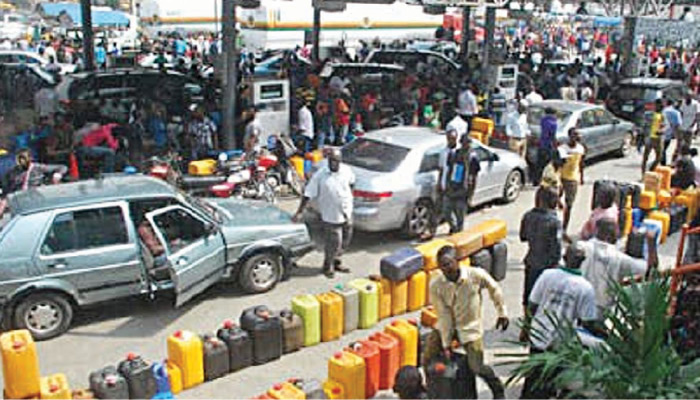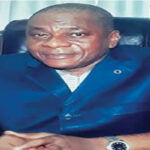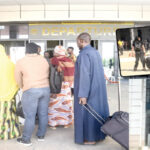
DANIEL AYANTOYE x-rays the social and economic problems currently facing the country and the possible way out
The year 2023 began with lots of expectations and hopes not just because it’s a new year, but because it is the year that will usher in a new government and leadership structure in the nation. Nigeria’s election is held every four years. This year’s is, however, unique because it is transitional as the incumbent President, Major General Muhammadu Buhari (retd.), will hand over to another democratically elected President after completing two terms of eight years in office.
There is no doubting the fact that the country has continued to face a myriad of problems. While many of these problems remain unsolved, Nigerians have waited endlessly for solutions to no avail. Poor infrastructure, unemployment, poverty, insecurity, increasing debt burden, fuel scarcity, economic downturn, inflation, division along tribal and religious lines, among others are the teething problems facing the country.
While the hope for a positive change is hinged on the fact that there will be a change in government this year, many are of the view that the next President may not be able to cope with the national challenges.
The 2023 presidential election is less than 50 days away in what appears to be a three-horse race between Bola Tinubu of the All Progressives Congress, Atiku Abubakar of the Peoples Democratic Party and Peter Obi of the Labour Party. Anyone of them who emerges as the President will be looking at tackling the dwindling economy, insecurity, hunger and high cost of living.
Poverty and hardship
The high cost of living and other economic issues have combined to worsen the current situation, leading to an increase in the country’s poverty index. According to the National Bureau of Statistics, 133 million Nigerians are multi-dimensionally poor out of over 200 million citizens.
This is against the fact that the country is endowed with human and natural resources. The failure of the previous and the current leaders to manage the resources as manifested in failure in governance has been blamed for the problems.
Corruption
Corruption in government has continued to compound the country’s woes, even as resources that are expected to contribute to gradually reducing the poverty rate are siphoned by a few people who take advantage of their positions in government. Before the coming of the incumbent government, there were records of public officials who were involved in corrupt practices.
One of such cases that need mentioning is that of a former Minister of Petroleum under ex-President Goodluck Jonathan, Diezani Alison-Madueke, from whom the Economic and Financial Crimes Commission recovered $153m and 80 properties.
Also, the case of the then serving Accountant-General of the Federation, Idris Ahmed, who allegedly misappropriated N109bn, explains why more Nigerians are poor despite the social investment programmes of the current regime. The EFCC recently said it had recovered N30bn from the suspended AGF. This is only one incident among several others yet to be discovered.
A former EFCC chairman, Ibrahim Magu, was arrested and subsequently sacked over alleged corruption. Magu, who was in charge of the EFCC between 2015 and July 2022, was accused of mishandling the recovered loot and selling seized assets, with his associates said to be major beneficiaries.
Insecurity
The increasing level of kidnapping, armed robbery, rape and other social vices remains a source of concern. With the recent attacks on the facilities of the Independent National Electoral Commission, many Nigerians have expressed concerns over the capacity of INEC to conduct credible elections this year amid a high level of insecurity.
With the prevailing circumstances, some Nigerians who spoke to Saturday PUNCH expressed pessimism that the country might face the worst situation in 2023, but were hopeful that the citizens would get it right at the polls.
Concerns
The Public Relations Officer of the National Association of Nigerian Students, Temitope Giwa, urged the Federal Government and the Academic Staff Union of Universities to resolve their differences.
He recalled that ASUU’s eight-month strike in 2022 affected the students, adding that a recurrence should be avoided at all cost.
“Our major challenge last year was the ASUU strike and when we resumed, we protested against the government. We expect more from the government this year. What we want is the funding of the educational sector,” he said.
Also expressing concern over the increase in tuition fees by tertiary institutions, the NANS spokesman argued that such would add to the burden of parents, whose salaries were not increased amid high cost of living. According to him, students are not ready to vote for anyone who is not ready to promote and increase funding of the education sector in Nigeria.
A former President, National Association of Universities Students, Felix Ijegalu, said Nigerian students of voting age should be thinking about electing credible candidates capable of solving the challenges facing the country.
He said, “The situation of the country is abysmal, choking, frustrating, dehumanising, brutal and nasty. The level of crime is high. People are hungry and suffering bitterly. These are things you see when we don’t do the right thing. When you don’t take into cognizance that there are a lot of loopholes to fill; there is a lack of jobs, this will lead to having more criminals in the society because hope is dead.
“The entire student body should be thinking of how to vote for credible candidates, and if they do so, they can be guaranteed a better 2023. On the other hand, they can have the choice of voting in people who are not good enough and then expect the worst. So, we are looking out for leaders with antecedents, who can be able to show their track records and believe that if they have the opportunity, they can replicate what they had done before.”
The Chairman of ASUU, University of Ilorin chapter, Prof Moyosore Ajao, stated that any attempt by the incoming government to continue the policy of the incumbent regime by owing staff salaries would attract stiff resistance from the union.
According to him, the next government must be ready to inherit the assets and liabilities of the outgoing administration, while also ensuring it meets up with its responsibilities.
“The only thing is that the government should live up to its responsibility. When you sign an agreement with people, it is important that you honour the agreement. Nobody is interested in going on, but you can’t withhold our salaries and you think there is going to be peace; there can’t be peace,” he added.
Similarly, the Chairman of the Nigerian Labour Congress, Oyo State chapter, Mr Martins Kayode, said workers’ salaries were long overdue for increment in line with current economic realities. He said, “The issue of insecurity is a major problem. Governments at every level must ensure the security of lives and property. Insecurity has affected the economy; that is why we are calling for an increment in salaries because inflation has affected our income.
“We have started asking for a review of the salaries, because it is long overdue. The situation on the ground has warranted that workers’ salaries be reviewed. Come what may, whoever wins the 2023 election is going to have a whole lot of work to do because everybody is feeling concerned now. Whoever wins has a lot of questions to answer and that will be a positive one.”
Experts react
Reviewing the challenges confronting the country, a political analyst and former Vice-President of the Nigerian Political Science Association, Prof Sani Fage, described 2023 as a decision-making year for all Nigerians. He stated that a lot of positive and negative things happened last year, but added that the hope of the future would be determined by the citizens’ willingness to change the narrative by choosing the right leaders.
Fage said the well-being of Nigerians in the next four years would be determined by the choice they make in the February 25 presidential election. He described as worrisome the spate of insecurity that had also resulted in attacks on INEC facilities and expressed the need for synergy between the electoral umpire and the security agencies to achieve a credible election. Fage also expressed concern over the level of corruption, which he stated, had made the Federal Government to continue to lose billions of naira to corrupt individuals.
He said, “Politically, things are not likely to be different from what we used to have before like the use of hate speech and thugs. This is a bad omen to the system; we are already seeing it being used gradually now as we approach Election Day.
“We are not unaware that Nigeria now has a lot of problems in terms of insecurity, poverty, unemployment, corruption and inflation. These are serious issues that would have been part of their programmes, but to our surprise, none of the political parties has any concrete programme to address these issues, but propaganda.”
Fage added, “Corruption is so deep in the country. Even if the government insists on something, those who are to implement it most times use it for their interest.
“The issue of unity of the nation is also a big concern, and unfortunately, politicians have worsened the matter as Nigerians are more divided than ever. It will take a lot of hard work to bring that sense of unity back again. Anyone who eventually becomes the President should look out to work on this. He should try to build a bridge that will maintain the unity of Nigeria.”
An economist, Prof Edet Akpakpan, was of the view that the challenges in the country would be resolved if people were gainfully employed. He said, “I just pray that we have a better year. The situation on the ground is very bad, especially as it concerns the economy. We just have to tackle it.
“We cannot as a nation wish away anything. We just have to get to work to rescue ourselves. We cannot continue to do things the way we have been doing and expect a different result. We are not tackling any of our problems. Take unemployment for instance, what are we doing about it? Employment opportunities are created by business enterprises. All we need to do with the government leading the way is to stimulate the emergence of viable business enterprises.
“Projects bring about transformation; it is not the money that you vote for, tell us the projects and allow us to analyse the projects to see whether each has the capacity for the conditions you need in your economy.
“This year, we just have to take a decision that will determine whether we will exist or not, or else, we take drastic actions to stimulate the production of varieties of goods and services, which is the only way we can save this country. Jobs need to be created; first of all, it is from jobs that are created that people will have incomes that will help to lift people out of poverty.”
Speaking on the issues of removal of fuel subsidy and reopening of land borders, he stated that the removal of subsidies should be done gradually so as not to affect the economy. He added that there should be no attempt to shut the borders.
Akpakpan added, “Subsidy will have to go. When we closed the borders, it was to be able to strengthen the local industry. Have we used the opportunity to strengthen production? But we cannot close our borders and expect other people to open their own.
“We barely have hard facts about this subsidy; let the government come out and tell us what exactly it is with this subsidy. We need subsidies occasionally, but not the kind of subsidy that will cost the country trillions of naira. It is a shame that this is what is happening in the downstream petroleum sector.
“Again, you can’t just remove the subsidy overnight; it has to be gradual. If you remove subsidy overnight, you will shock the system. But you must also look at where the subsidy is going and how justified it is.”
On his part, a human right lawyer and Professor of Law, Nnamdi Aduba, said killing of innocent Nigerians was rampant in 2022, even as he called on relevant authorities to tackle the menace this year. According to him, despite the funds that have been committed to security by the government, there seems to be no end to the challenges of insecurity in the country.
He added, “This systematic destruction of INEC property; if you watch the locations of the property and the closeness to police stations, you will start wondering whether there is something else happening, or whether the election is going to hold.
“Another problem is logistics for the general elections. If INEC has reached an agreement with road transport workers, the question is; are they trustworthy? There have been cases where they compromised, you come in the morning, you won’t see their drivers, and they will not move goods. So, if we are going to get this thing right, I think there should be sufficient synergy between INEC, the transport unions and traditional institutions because the security threat is real.”
Aduba added, “The worst is the issue of fuel scarcity; I think it should not be allowed to linger because it is making a mess of our people’s lives. You know initially, the government promised that they were going to increase salaries, but suddenly they backtracked.
“The ASUU issue is also pregnant in the sense that people are unhappy with the way things are. In fact, some lecturers have died, and some have also retired. Money should be pumped into academics. Tertiary education is still unstable.”
On his part, a security expert, Nnamdi Anekwe-Chive, said there was a need for security outfits in the country to tighten security before, during and after the general elections.
According to him, at the beginning of the year 2022, there was a serious setback in the country with the upsurge in banditry in the North-West. He recalled that while the military was tackling Boko Haram insurgency in the North-East; the South-East also witnessed a sharp increase in crime, ranging from banditry to kidnapping. Anekwe-Chive said it was a similar situation in the South-West and the South-South regions.
He expressed optimism that with the deployment of technology and experienced people, the Federal Government would be able to eradicate the problem of banditry, kidnapping and terrorism in the country.
Anekwe-Chive stated, “The joint forces are also meeting to provide security so that there will be no threat to the elections. So, we are looking at the joint forces and the DSS developing a framework to manage insecurity that will come up on Election Day.
“We are looking at the security forces to articulate security strategies before, during and after the elections. Banditry and terrorism are also seen as a threat, especially with the tension in the South-East. So, it is left for the security agencies to come up with a plan to suppress these adversaries and ensure free and fair elections.
“We are already divided along Christian and Muslim lines because of the election. There is suspicion between Christians and Muslims when it comes to politics. They both believe that the other is cheating them, and you see this from some of the utterances of the leaders. It is left to whoever wins to come up with strategies with a view to reconciling the different sections of Nigeria.”





